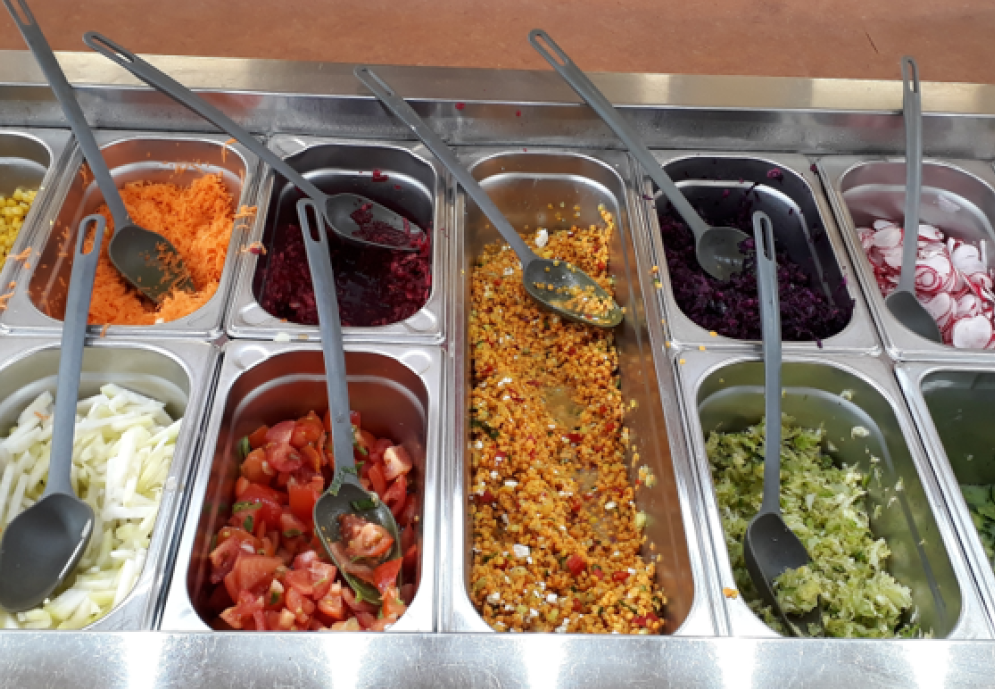

‘Happy hour’ - saving food waste with a discount
Project summary
An activity using a 'happy hour' approach to help reduce food waste.
Learning outcome
Students
- are aware of food waste
- reflect the situation in their school
- get ideas on how they can become active themselves
- experience self-efficacy and group spirit
Time required
2 hours (for planning)
Tools or equipment
Paper, pen
Activity description
Fighting food waste with a 'happy hour' discount
Depending on the canteen and snack-buffet system in schools, up to 40% of food/meals are not served. They end up in the rubbish.
In this activity, students investigate the food waste that occurs at their school (see Food Waste Audit worksheet).
They try out the ‘Happy hour’ method as a way of making edible meals from food that can no longer be used in the kitchen or school snack buffet. This would end up as food waste but is made available at a reduced price during a campaign period.
-
Happy hour for students, teachers and employees:
At the end of serving time (specify exact time period), sell the remaining food and snacks at a reduced price (e.g. half price, by 1.50 euros/item...) to avoid food waste.
Communicate: This offer only applies to food that has already been produced and would have to be disposed of after the end of opening hours.
-
Happy Hour for parents:
Food that has been cooled properly and is in its original packaging can also be made available for parents to pass on in the evening.
Please note: Anything that was open and without protection may not be passed on, regardless of whether it is chargeable or free of charge!
Additional ideas:
- Food that is about to expire with discounts
- Too much sliced bread? Make it available to pupils the following day at a low price or free of charge, e.g. with butter or spreads for students to spread themselves.
- Piece fruit not eaten? Students prefer to be able to choose smaller quantities. Give the children/students apple cutters so that they can share the fruit with others or choose only half fruit.
- Salads are not eaten? If there is salad at the table, more salad will be eaten. Many who would not pick up salad from the buffet eat the salad when it is in front of them on the table.
Additional material:
- Guide to reducing food waste for schools, caterers and decision-makers (in German) Luck, S. et al (2024): Leitfaden zur Reduzierung von Lebensmittelabfällen für Schulen, Caterer und Entscheidungsträger https://boku.ac.at/fileadmin/data/H03000/H81000/H81300/upload-files/Forschung/Lebensmittel/Leitfaden_Letztversion.pdf
Tips how to implement the topic to school curriculum
Natural science and environmental studies: environmental impact of food waste, lifecycle of food, reduce food waste, track food consumption and waste in practical scenarios
Geography, economics, social studies: discuss global issues related to food security and waste, ethical and social implications of food waste, solutions and initiatives to combat food waste
All subjects: Improving organisational skills
